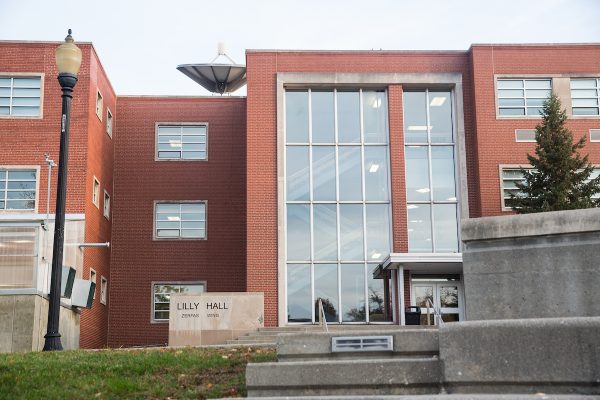UIndy Chemistry Dept. Joins MICRO Program

The UIndy Chemistry Department will be incorporating at least three microfluidic devices into analytical chemistry labs, providing flexibility for students amid the COVID-19 pandemic.
UIndy’s Chemistry Department has been accepted into the MICRO (Development and Deployment of Microfluidic Based Labs in Chemistry) program, which aims to incorporate microfluidic lab-on-a-chip devices into analytical chemistry curriculum. UIndy is one of 10 institutions selected to pioneer this program in the upcoming academic year.
MICRO allows students to safely perform inquiry-based lab experiments using microfluidic devices, according to the project website. The versatility and relative safety of the technology allows for greater experiment flexibility, student exploration, and autonomy. These devices are safe to use at home, in a lab, or in the field.
Associate Professor of Chemistry Levi Mielke will be heading this initiative at UIndy and collaborating with four institutions (Notre Dame, Skidmore College, Oregon State, and University of Iowa) to develop and implement the labs and share ideas.
“Participation in the MICRO project will expand UIndy’s capability to engage analytical chemistry students in active learning labs that can be conducted in the lab or safely at home… Our students will learn how to fabricate the devices, apply them to unique analytical chemistry situations, and derive meaningful and thought provoking data.” Mielke said.
Student experiences and learning with these microfluidic devices will be assessed by a program reviewer and written up for publication. Additionally, there will be opportunities for independent student research programs and outreach to local schools.
This initiative is funded by the National Science Foundation and Howard Hughes Medical Institute. Learn more about the project.
